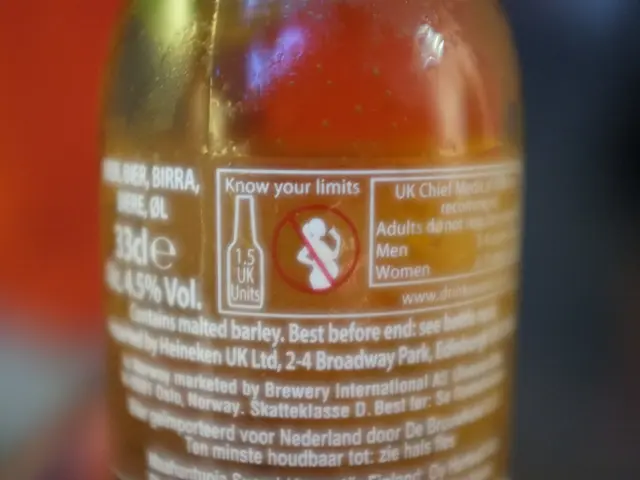Deteriorating Humanitarian Aid Situation in Gaza Warned by the Red Cross; Graves Risks Faced Without Immediate Assistance
The Humanitarian Crisis in Gaza Hits Rock Bottom
The International Committee of the Red Cross (ICRC) sounds the alarm as the humanitarian crisis in Gaza teeters on the brink of collapse. Six weeks of relentless hostilities, coupled with a two-month blockade on aid, has left civilians struggling to meet their most basic needs, the aid group warns.
In a statement on their website, the ICRC describes a daily struggle for Gazan civilians — coping with the dangers of continued hostilities, displacement, and the consequences of a severe lack of essential humanitarian assistance. Pascal Hundt, ICRC's deputy director of operations, emphasizes, "This situation cannot-and must not-be allowed to worsen."
The Israeli occupation, bound by international humanitarian law to ensure civilian needs are met, has imposed a complete seal on the Gaza Strip since March 2, prohibiting food, water, and medicine.
The ICRC's Red Cross Field Hospital in Gaza faces a critical shortage of food and medical supplies, with some vital medicines already depleted. Hospitals and other medical facilities are reorganizing their resources, prioritizing supplies to continue lifesaving activities. Without immediate restocking, medical care for patients could become unattainable.
The water, sanitation, and hygiene situation has deteriorated sharply, with disruptions to water systems and the destruction of sewage trucks creating an unacceptable risk of waterborne diseases.
The dire situation is further compounded by attacks on healthcare facilities and medical personnel. Last month, 15 healthcare workers, including eight from the Palestine Red Crescent Society, were viciously gunned down while responding to emergency calls.
The ICRC remains steadfast in serving the people of Gaza, but the escalating security situation drastically limits their work and the movement of their partners. The ICRC pleads for humanitarian aid to be allowed into Gaza, hostages to be released, and civilians to be protected to prevent further chaos.
Without immediate action, the ICRC foresees Gaza plunging deeper into turmoil, an affliction humanitarian efforts may struggle to alleviate.
Related:- The European Union calls on Israel to lift the Gaza blockade and allow humanitarian aid access.- Israel prepares a mass army call-up to escalate Gaza offensive.- The World Health Organization (WHO) reports that the entire population of over 2 million Palestinians in Gaza is facing prolonged food shortages, with nearly half a million in catastrophic hunger and malnutrition. Since March 2, 2025, dozens of children have died due to malnutrition, and the risk of famine is surging due to deliberately withheld aid.
- The United Nations (UN) calls for an immediate end to the war in Gaza, as the humanitarian crisis escalates.
- In a statement, the World Health Organization (WHO) highlights the mental-health toll the ongoing conflict is taking on Gaza's population.
- Science and health-and-wellness organizations around the world are pushing for political leaders to prioritize ceasefire negotiations and humanitarian aid.
- Amidst the backdrop of war-and-conflicts news, general-news platforms are focused on the dire situation in Gaza and calls for action.
- Crime-and-justice authorities are investigating recent attacks on healthcare facilities and medical personnel in Gaza, holding perpetrators accountable for their actions.
- As tensions rise in Gaza, many are advocating for a ceasefire and addressing underlying issues to prevent future attacks.
- The International Red Cross and Red Crescent Movement urges all parties involved to uphold international humanitarian law and protect civilians during war.
- The displacement of hundreds of thousands of people in Gaza, coupled with a lack of access to essential services, is leading to widespread mental-health issues.
- The ICRC's calls for immediate aid access in Gaza have been echoed by numerous humanitarian organizations, urging all sides to take steps to prevent further suffering and promote the general well-being of the region.







